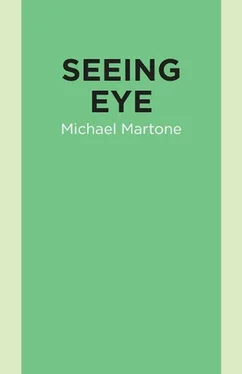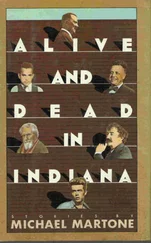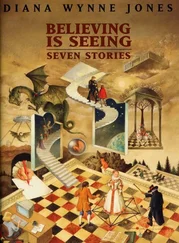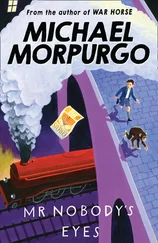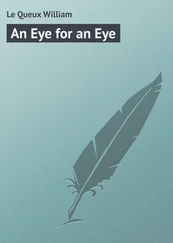Michael Martone - Seeing Eye
Здесь есть возможность читать онлайн «Michael Martone - Seeing Eye» весь текст электронной книги совершенно бесплатно (целиком полную версию без сокращений). В некоторых случаях можно слушать аудио, скачать через торрент в формате fb2 и присутствует краткое содержание. Год выпуска: 2013, Издательство: Dzanc Books, Жанр: Современная проза, на английском языке. Описание произведения, (предисловие) а так же отзывы посетителей доступны на портале библиотеки ЛибКат.
- Название:Seeing Eye
- Автор:
- Издательство:Dzanc Books
- Жанр:
- Год:2013
- ISBN:нет данных
- Рейтинг книги:5 / 5. Голосов: 1
-
Избранное:Добавить в избранное
- Отзывы:
-
Ваша оценка:
- 100
- 1
- 2
- 3
- 4
- 5
Seeing Eye: краткое содержание, описание и аннотация
Предлагаем к чтению аннотацию, описание, краткое содержание или предисловие (зависит от того, что написал сам автор книги «Seeing Eye»). Если вы не нашли необходимую информацию о книге — напишите в комментариях, мы постараемся отыскать её.
Seeing Eye — читать онлайн бесплатно полную книгу (весь текст) целиком
Ниже представлен текст книги, разбитый по страницам. Система сохранения места последней прочитанной страницы, позволяет с удобством читать онлайн бесплатно книгу «Seeing Eye», без необходимости каждый раз заново искать на чём Вы остановились. Поставьте закладку, и сможете в любой момент перейти на страницу, на которой закончили чтение.
Интервал:
Закладка:
We talked. I did say hello from my parents. Annie had been working this summer as an illustrator for the veterinary college, rendering organs, muscles, and bones of various domesticated animals. We set our bowls aside, and she brought out several drawings, turning on the porch light as she stepped through the door. She handed me a bone the size of a rolled up Sunday’s newspaper.
“A cow’s femur,” she said. I was never much for the insides of things. I was raised on a farm and should be comfortable with the guts of animals. My father delights in eating the brains and hearts and tongues. I have watched my mother wring the water from kidneys and roll the shiny liver in her hands. I think to myself that I should love, to the point of consuming, the whole animals I tend. Still, something sticks in my throat. When I moved back to the farm, I castrated the first bull calf born. I wanted to raise a steer and slaughter it myself. I named him Orville. He was docile and fat. He did dress out nicely when the time came, but I let the locker do it. I can’t get used to it. Sometimes during calving, a cow’s uterus will prolapse. I’ll find it spreading in the gutter behind her. I can tell myself I know what it is, I know what to do, but when I see guts it’s as if my guts are doing the thinking. I stop seeing the animal as a kind of a machine to scrap or fix. Even dairymen need a distance. Maybe especially dairymen.
“Do they still have the cow at the vet school with the window in her side?” I asked her. I would go over there between classes and make myself watch the regurgitating stomachs squeeze and stretch. The cow was alive, chewing her cud. A flap had been cut in her side for studying. I always admired her patience, the way she stood in the special stall letting the technician dab antiseptic around the opening.
“I don’t know if it is the same one you saw,” Annie said, “but they still have one. The elementary school science classes still are herded in to take a look. They want to not look but can’t help themselves.”
I could feel my stomach working under my skin, wrapping itself around the stringy elbow noodles, plumbing within plumbing. The bone was in the grass at our feet, weighing down the newsprint sheet with its unfinished sketch. She used a kind of stippling style, all points of ink that clustered into shadow for depth, so that the bone on paper looked worn and smooth as paper, porous as bone, chipped like the china bowls. The dots looked like a chain of volcanic islands on a map of a huge sea tracing the fault hidden under the water.
I told her about my own drawing, the sketches in the herd book. “I wish I had your eye,” I told her. Even with the coordinate grid, it was still so awkward transferring the markings to paper. “It’s just a mess. There are gray smears where I’ve erased. It looks like they have some kind of mange.”
“You like cows a lot though, don’t you?” she said then.
“Yeah, I guess I do. I guess I’d have to to do what I am doing.”
“But don’t you miss,” she said, “don’t you miss the noise of other people? I remember the farm being so quiet and how you never talked. I never knew what you were thinking.”
I sat there on the stoop in the yellow light of the bug bulb thinking about the farm and how I missed the cows, the green fields, and the piles of junk when I was here at school. I thought of the chatter of my own thoughts, how when I work I am always telling myself what I am doing. I am opening the gate now. I am walking into the barnyard. I am driving the cows into the lower field. My boots sinking into the kneaded mud of the yard.
“I love cows too,” she said. “The big eyes. The way they just stand there. You look away and then look back and they look like they haven’t moved but they have. The arrangement is all different.”
“Yeah,” I said. “That’s true.”
“It’s like drawing waves in a lake. The calm motion.” She shivered. “Spooky after a while.”
That night I slept in the front room on a couch that came with the place. The apartment had aired out with the windows and the doors propped open. Annie had tucked in white sheets around the cushions. The vault of the Quonset hut created a kind of organic cavity, and the ribbed walls were papered with her washes of organs and glands. The sink on the dividing wall between the two apartments gurgled when the neighbors came home. I stayed awake, listening to the rattle of their language that seemed pitched just right to start the sheet metal of the building buzzing. They played strange music that ratcheted up and down the walls like a thumbnail on a washboard. Later still, when they had disappeared deeper into their side of the building, I tried to imagine them. I gave them a family life, a routine, classes to take, diplomas they would haul back to the other side of the world, where they would wade in paddies, follow cattle along a packed earth road. And I thought of Annie too, on the other side of the inside wall. I hovered over her bed and watched her slowly rearrange herself, articulating arms, the white rollers breaking along the shore as she stretched a leg beneath the sheet, the tide of her breathing. How she used up every inch of space in her bed, asleep but constantly moving.
Before I left the next day, I wandered over to the Union and had some ice cream, chocolate, in a dish. Students were cutting through the building for a bit of air-conditioning before dashing on to the next classroom. Some would stop and buy a cone, stand and lick the ice cream smooth on all sides, manageable, before they rushed off. The Union is camouflaged with Tudor beams of darkly stained wood and stuccoed walls. I hadn’t remembered it being this much like a barn. Lumps of students sleeping in leather club chairs or single ones swaying in study carrels, reading, tucked in nooks behind squat square columns. I knew where the milk had come from to make the ice cream, but no longer remembered the origin of chocolate. South America? Peru? The other Peru? Which was the more exotic ingredient, the stranger place?
I drifted over to the library across the street from the Union. It was hot out, and I promised myself I would hang around the campus till the sun went down, then drive back home in the dark. When I was a student, I liked to look at the special collections the library had on flyers and airplanes. Neil Armstrong went to Purdue. A lot of astronauts did. I don’t know why. And the plane Amelia Earhart disappeared in was owned partly by the school. At the time she was a professor of aviation or something. There are pictures of her in her flying jacket and slacks having tea with women students. They crowd around her. I love the pictures of her posed with the silver Electra, poring over maps of the world in this very room of the library. The room seemed even more crowded now with trophy cases, photos, charts, and models. There were navigation instruments and facsimiles of her notes and letters. I looked at a milky white scarf arranged as if casually flung along the black velvet shelf encased in glass.
A librarian was typing labels in an office off the main room. Behind her there was a picture of the librarian receiving the school flag from two astronauts. It looked like the ceremony was taking place during the halfitime of a basketball game.
“The flag had just come back from the moon,” she told me. “I have it here someplace.”
I told her I was interested in Amelia Earhart’s time at Purdue. I like to think of her circling above the countryside, perhaps looking down on our farm. It isn’t that far away. I sat down at a polished table where she brought me an album stuffed with local news clippings, brittle and yellowed, pasted to the black pages.
“They found her, you know,” the librarian said. “They think they found her.”
Читать дальшеИнтервал:
Закладка:
Похожие книги на «Seeing Eye»
Представляем Вашему вниманию похожие книги на «Seeing Eye» списком для выбора. Мы отобрали схожую по названию и смыслу литературу в надежде предоставить читателям больше вариантов отыскать новые, интересные, ещё непрочитанные произведения.
Обсуждение, отзывы о книге «Seeing Eye» и просто собственные мнения читателей. Оставьте ваши комментарии, напишите, что Вы думаете о произведении, его смысле или главных героях. Укажите что конкретно понравилось, а что нет, и почему Вы так считаете.
